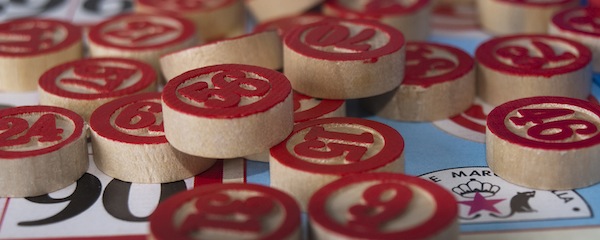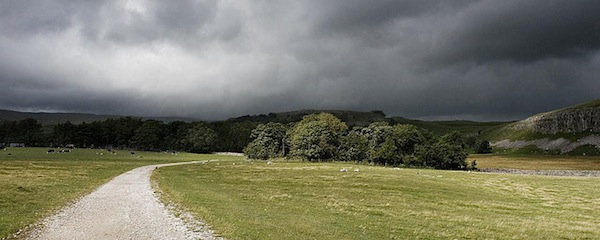
photo © Rick Harrison, 2008
by Pratibha Castle
My first encounter with Kevin Barry’s award-winning short story collection There Are Little Kingdoms proved a revelation. Despite leaving Ireland at the age of three, the ‘bog Irish’ language of the characters, and their tragic plights, touched something deep inside me I hardly knew was there.
Traipsing round 1950s London in search of lodgings, my mother was no doubt downcast by the ‘NO BLACKS NO DOGS NO IRISH’ signs she saw on the windows of the local B&Bs. Success in this alien country, or at least survival, demanded camouflage. Elocution classes, she surmised, might solve the problem.
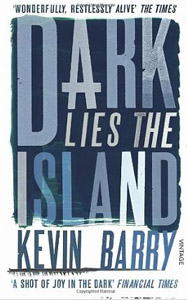 So, like the ‘ladies’ in the ‘1940s British, stiff-upper-lip movies’ of the title story in Barry’s second collection Dark Lies the Island, I learnt to speak ‘as though with marbles in [my] mouth’.
So, like the ‘ladies’ in the ‘1940s British, stiff-upper-lip movies’ of the title story in Barry’s second collection Dark Lies the Island, I learnt to speak ‘as though with marbles in [my] mouth’.
Survive I did, but, like these ladies, I was also left ‘ve-hy much ah-lone, aksherly’. Though even with Irish accent intact, the sense of ‘awful distance’ borne by Barry’s characters might still have plagued me.
How often does a writing tutor counsel students that there is ‘no story without trouble’? Barry’s stories creak with trouble. His words throb dark and heavy on the page. His landscapes are hostile – in an interview with The Paris Review, Barry said he suspects landscapes are corrupted by feelings that ‘escape from people’ to ‘seep into the stones of a place’. His hills are ‘morbid’, fields ‘dismal’, bogs ‘dour’. And religion offers scant relief: rain ‘like handfuls of nails’ is ‘flung hard and fast by a seriously riled sky god’ whose churches are ‘stone cold’. The characters in these stories, described in a recent interview with Paul McVeigh as ‘squeezed’, struggle in dysfunctional relationships, seeping their pessimistic outlooks into the countryside.
The awkward hero of ‘To the Hills’, Brian, ‘wouldn’t have figured himself for a catch but there you go’. He is tall, slim, ‘steady’, and has a good job ‘in the labs’ and so he is deemed a safe bet by two girls, Teresa and Maria. Unlike the nephew of Brian’s landlady (who herself ‘conversed in the small hours of the night – every night – with an aunt dead twenty years’), Brian suffered from ‘no savage dependency on drink’, no ‘addiction to cough bottles’, no ‘sullen, thyroidal stare’. His hair, however, is a ‘helmet’, and his eyebrows ‘furious’, perched ‘up top of a dismal nose.’
Brian decides that ‘Marie was just too good-looking for him; he wouldn’t have a hope in hell’ and he settles on Teresa, who ‘on the other hand, was at the back of the line when chins were being handed out’ and moreover ‘had the eyes of a crow’.
Surely this might play to his advantage. Brian was versed in the cruel wiles of natural selection, but natural selection is quick ignored when you’ve passed forty and you’re masturbating into a sock the grey mornings in a one-bedroom apartment, lounge-diner-cum-kitchen.
And so it is that Brian and Teresa manage a semblance of flirtatiousness on the way back down to the village.
God, Brian, we’re after getting some bit of fresh air into us today, said Teresa.
You’d nearly be driven wild with it, said Brian.
This, by his normal standard, by the normal old go of him, was richly provocative stuff […] is that all it takes, he thought, the one ruby comment?
But even the threat of satisfaction presents problems for Barry’s characters. When Brian ends up ‘naked together’ in bed with Teresa, though ‘having not had sex’, his response to this unfamiliar intimacy is to tell her of his father’s sudden death from a brain haemorrhage during a family beach holiday.
An amount of blood you would not believe. Did you know that, he said, did you know, Teresa, that blood actually comes out the ears?
Go ‘way? said Teresa.
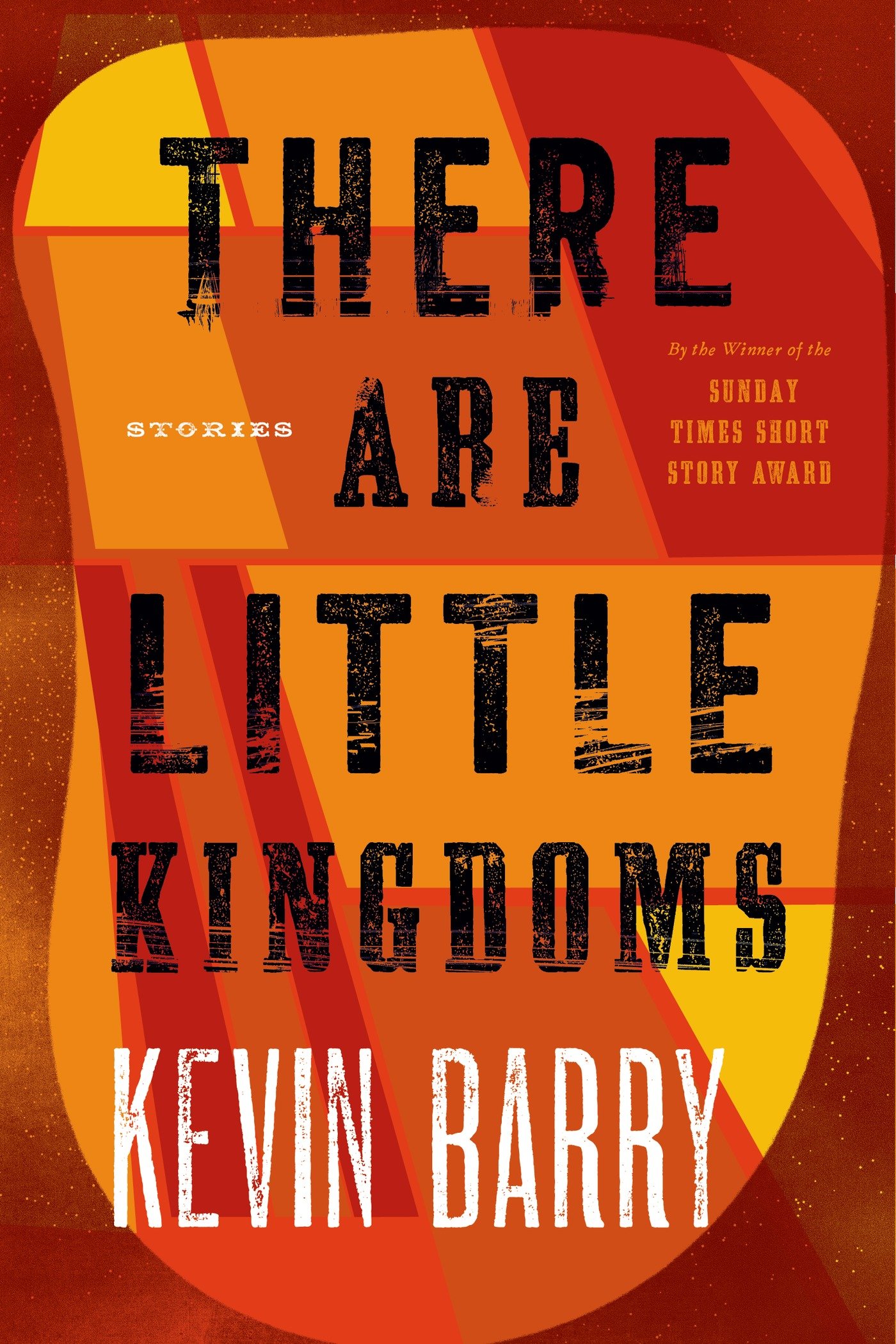 You can almost hear her yawn. However, as the story nears its end, we are granted a glimpse of Teresa’s own dismal inner landscape:
You can almost hear her yawn. However, as the story nears its end, we are granted a glimpse of Teresa’s own dismal inner landscape:
…[she] decided she was having a terrific time. This intimacy, she felt, was powerful stuff. Yes, she was greatly enjoying the whole experience but she would enjoy it all the more when she was at home on her couch, alone except for the cat, with the lights dimmed and a glass full to the brim and the late programme on Lyric playing low on the radio. Then she would savour it all truly.
Such ‘true stuff’, as Barry calls it, ‘you tend to wriggle away from on the page’, but it infuses a story with the breath of life. I yelped with laughter as I read, even as I grimaced.
The story ends with Brian’s gut wrenching willingness to ‘give this another go’; whether prompted by vulnerability or denial is left to the reader to interpret.
Brian is not the only one of Barry’s characters who faces trouble with the girls. ‘Dark Lies The Island’ starts ‘early one summer morning’ with the tale of a youth on a roof at the end of an all-night party. Reminiscent of the melancholy English folk song, ‘Early One Morning’, the mood is sweetly lyrical.
The youth is with a girl. ‘My want for her was intense and long-standing – three months, at least; an eternity – and I was close enough to see the opaque down of her bare arms.’ But already from the first paragraph a taint of strangeness seeps into the story. ‘Each strand’ of hair on her arm is ‘curling like a comma at its tip’, and ‘tiny flecks of dark’ are ‘scratched against the hazel of her eyes’. Before long, the ‘hard quickening beat’ of his heart becomes the ‘hard rasp of jungle panic ripping’ at his ‘chest inside’. We are led to suspect the girl is a tricksy miss, whose ‘urging on’ of the youth is but a taunt.
The ‘trace of shock’ in the girl’s laugh when the boy, ‘out of nowhere’, becomes ‘forceful’ also ripples through the reader. She breaks his kiss with a ‘pressure’ of fingertips on his chest, ‘a fuse that fed directly from her heart’. The moment of magic is shattered. His heart, ‘opened’ from the kiss, ‘took in every black poison the morning could offer’.
Once again the reader is surprised. The ‘heavy beat’ of a ‘fat pigeon’s’ wings’ dispels the ‘dark spell’ that has formed about them. Nature, for once, proves kind.
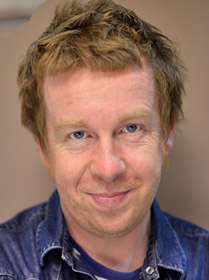 Barry started his career as a journalist for a local newspaper, inspiration for his dialogue coming from visits to the county courts. With a raft of awards under his belt – the Rooney Prize for Irish Literature, International Dublin Literary Award, The Sunday Times EFG Private Bank Short Story Award, Authors’ Club First Novel Award, shortlisted for the Costa Book Award, to name but a few – Irish writer Kevin Barry admits to a lust for the Nobel Prize. Despite such success, in an interview in 2011 with The Short Review, he admitted to being ‘hugely insecure’ and ‘desperate to be loved’ by his readers.
Barry started his career as a journalist for a local newspaper, inspiration for his dialogue coming from visits to the county courts. With a raft of awards under his belt – the Rooney Prize for Irish Literature, International Dublin Literary Award, The Sunday Times EFG Private Bank Short Story Award, Authors’ Club First Novel Award, shortlisted for the Costa Book Award, to name but a few – Irish writer Kevin Barry admits to a lust for the Nobel Prize. Despite such success, in an interview in 2011 with The Short Review, he admitted to being ‘hugely insecure’ and ‘desperate to be loved’ by his readers.
He is certainly loved by this reader. His language surprises. Words of translucent lyricism – ‘the stars worked to hang a melody on the dark sky’ – glisten through imagery that teeters, at times, on the cliff-edge of grotesque – ‘the buck in the kiosk at the clamper had a face on him like a dose of cancer’. They provoke a response at an emotional level even while the reader veers, appalled, from the concrete vision. His stories are full of this style of ‘gallows’ humour, or ‘humour in the dark’, to quote Nabokov, a quality found in other Irish writers such as Beckett, Joyce and Swift.
And just as well. With the sort of trouble sparking Barry’s tales, if you didn’t laugh you’d have to slit your throat, as my auld granny used to say.
~
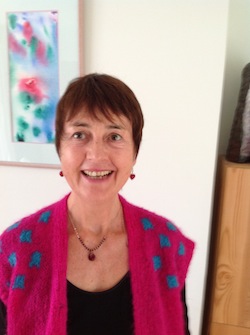 Pratibha Castle: Bed-time stories for my dad. The writing competition won at nine. The play composed, directed, starred in one year later. Hints present from the start.
Pratibha Castle: Bed-time stories for my dad. The writing competition won at nine. The play composed, directed, starred in one year later. Hints present from the start.
I have been a singer, cook, holistic therapist, bi-lingual PA, psychedelic hipster, tantric lover, wife, child-nun, mother, granny; from the start, a liar. Some of these I still am.
Borges, Woolf, Angela Carter, in company with countless other writers thrill me. I love champagne, gardening, swimming in the sea. Cats I can converse with, especially those with hints of Siamese. Life with all its challenges and-in-the moment grace. And one of the greatest endeavours of my life, exploring writing at Chichester University. A BA, then an MA, which I complete next year.
I write poems, short stories, reviews, am half-way through my first novel. A note book is fattening with ideas for the next. A third book contains the first pages of a self-help tome.
My happiest days are those filled with writing.
